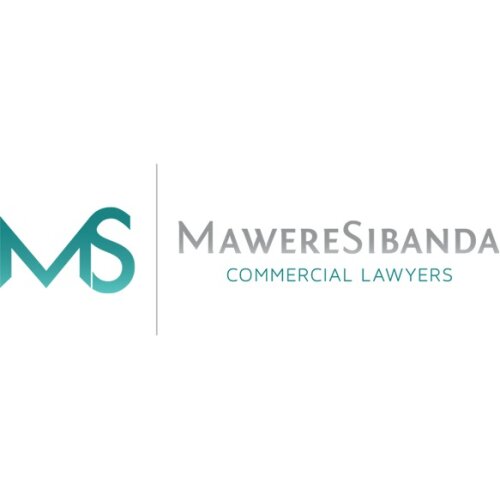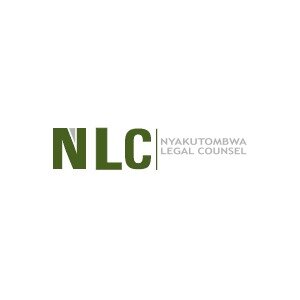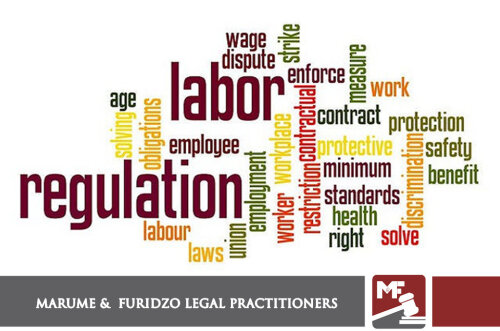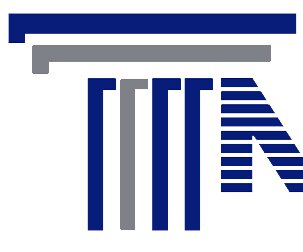Best Conveyancing Lawyers in Harare
Share your needs with us, get contacted by law firms.
Free. Takes 2 min.
Free Guide to Hiring a Real Estate Lawyer
List of the best lawyers in Harare, Zimbabwe
About Conveyancing Law in Harare, Zimbabwe
Conveyancing refers to the legal process of transferring ownership of immovable property such as land, houses, or buildings from one person to another. In Harare, Zimbabwe, conveyancing is a specialized legal function, typically conducted by registered legal practitioners who are familiar with property law and local regulations. This process ensures that all legal documentation is accurate and that ownership is properly transferred and registered with the relevant authorities. Conveyancing in Harare often involves a thorough examination of property titles, ensuring that the property is free of encumbrances or disputes, and navigating various statutory requirements.
Why You May Need a Lawyer
Property transactions are significant legal and financial commitments. Engaging a qualified conveyancing lawyer in Harare is crucial for the following reasons:
- Ensuring that the seller has valid ownership and the right to transfer the property
- Drafting or reviewing the Agreement of Sale to include all vital terms and obligations
- Conducting due diligence to detect any outstanding debts, disputes, or legal claims affecting the property
- Handling the lodgment and processing of documents with the Deeds Registry and other authorities
- Assisting with payment of taxes, duties, and registration fees
- Resolving complications, such as missing documents or conflicting claims, that often arise during transactions
- Protecting your interests and minimizing the risk of fraud or future disputes
Professional support is especially important if you are unfamiliar with the property market or the regulatory environment in Zimbabwe.
Local Laws Overview
Conveyancing in Harare is governed by several key laws and regulations, including the Deeds Registries Act, the Transfer Duty Act, and various municipal by-laws. Some essential elements of these laws are:
- The requirement for all transfers of title to immovable property to be registered at the Deeds Registry in Harare
- Verification and authentication of title deeds to ensure the seller's ability to sell the property
- Payment of government taxes and transfer duties before registration can be completed
- Complying with zoning requirements, town planning approvals, and municipal rates clearance certificates
- Specific statutory forms and procedures for different types of property (freehold, sectional title, leasehold)
- Stipulations regarding foreign ownership and inheritance transfers
It is important to note that failure to comply with these procedural and legal requirements can result in delays, nullification of the transaction, or legal liability.
Frequently Asked Questions
What is conveyancing and why is it necessary in Harare?
Conveyancing is the legal process of transferring the legal ownership of property from one person to another. In Harare, it is required to ensure that property transfers are lawfully executed and properly registered.
Who is authorized to carry out conveyancing in Harare?
Only registered legal practitioners (lawyers) with specific experience in property law are authorized to conduct conveyancing. They must be registered with the Law Society of Zimbabwe.
What documents are needed for a property transfer?
Key documents include the original title deed, a signed agreement of sale, personal identification, rates clearance certificates, tax clearance certificates, and, if applicable, consent from spouses or financial institutions.
How long does the conveyancing process take in Harare?
The duration can vary, but on average, it takes 2 to 3 months from the signing of the agreement to registration, depending on the complexity of the transaction and availability of documents.
What costs are involved in conveyancing?
Costs typically include the lawyer’s fees, government stamp duty, deeds registry fees, municipal rates clearance, and transfer duty. The exact amounts may vary depending on the property value and circumstances.
Can foreigners own property in Harare?
Foreigners may purchase property in Harare, but there may be restrictions on certain land categories or additional requirements. Legal advice is important to ensure compliance with all applicable rules.
How do I verify if a property has a clear title?
Your conveyancing lawyer will conduct a title search at the Deeds Registry to ensure that the title is free from encumbrances, outstanding debts, or legal disputes.
What happens if property disputes arise during conveyancing?
Disputes are managed by your lawyer, who will seek resolution through negotiation, mediation, or legal proceedings if needed. Due diligence before transfer minimizes the risk of disputes.
Is it possible to reverse a property transfer?
Reversing a transfer is complex and generally requires mutual consent of both parties or a court order. It may also incur additional legal fees and stamp duties.
What is the role of the Deeds Registry in Harare?
The Deeds Registry is the official government office responsible for recording all transfers of ownership for immovable property. Registration at the Deeds Registry is essential to make the transfer legally effective and enforceable.
Additional Resources
- Law Society of Zimbabwe - Provides a directory of qualified legal practitioners and can assist with lawyer referrals
- Ministry of Justice, Legal and Parliamentary Affairs - Offers guidance on property law and the Deeds Registry system
- Deeds Registry Office, Harare - Responsible for the registration of property transfers and issuance of title deeds
- Local municipal authorities (e.g., City of Harare) - Issue rates clearance certificates and confirm property zoning and planning compliance
Consulting these bodies or visiting their offices can provide further guidance and clarification on conveyancing matters in Harare.
Next Steps
If you are considering buying or selling property in Harare, Zimbabwe, your first step should be to consult with a qualified conveyancing lawyer. They will guide you through the process, help you gather necessary documentation, and safeguard your interests. Prepare all documentation related to the property, schedule a preliminary consultation, and discuss the details of your transaction and any concerns you may have. If you have ongoing questions or require assistance with specific legal challenges in the conveyancing process, do not hesitate to seek professional legal advice to ensure your transaction is secure and compliant with all applicable laws.
Lawzana helps you find the best lawyers and law firms in Harare through a curated and pre-screened list of qualified legal professionals. Our platform offers rankings and detailed profiles of attorneys and law firms, allowing you to compare based on practice areas, including Conveyancing, experience, and client feedback.
Each profile includes a description of the firm's areas of practice, client reviews, team members and partners, year of establishment, spoken languages, office locations, contact information, social media presence, and any published articles or resources. Most firms on our platform speak English and are experienced in both local and international legal matters.
Get a quote from top-rated law firms in Harare, Zimbabwe — quickly, securely, and without unnecessary hassle.
Disclaimer:
The information provided on this page is for general informational purposes only and does not constitute legal advice. While we strive to ensure the accuracy and relevance of the content, legal information may change over time, and interpretations of the law can vary. You should always consult with a qualified legal professional for advice specific to your situation.
We disclaim all liability for actions taken or not taken based on the content of this page. If you believe any information is incorrect or outdated, please contact us, and we will review and update it where appropriate.















